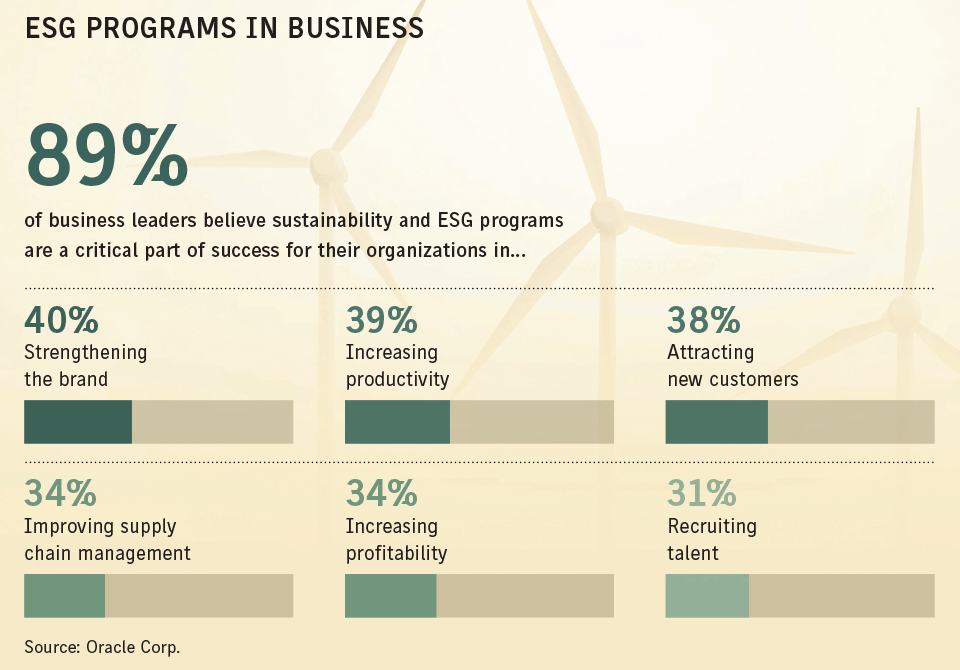Companies that build strong environmental, social and governance practices are slowly starting to see rewards in the shape of enhanced insurance coverage. That might mean preferred terms and conditions, broader coverage, access to increased insurance capacity and, yes, even a better price. As demonstrated by a growing number of Business Insurance 2022 Innovation Award winners, advances in the risk management and commercial insurance sector are increasingly taking this approach.
Whether developing coverage to respond to ESG-related risks or giving companies the tools to help manage the risks, insurers and brokers are stepping up. Directors and officers liability coverage is one of the first areas to have drawn interest from insurers looking at ESG exposures. This is not surprising given that stakeholders on all sides, including customers, employees, regulators and investors, are demanding that companies and their boards be held accountable on various issues such as the sustainability of their products, the accuracy of their climate-related disclosures, and their progress on diversity, equity and inclusion.
It makes sense that companies that commit to developing strong ESG frameworks might have more success in reducing their exposure to litigation and other D&O-related claims. Brokers and insurers in the D&O sector anecdotally say they have seen those efforts translate to improved claims experience, which is why they believe companies that have strong ESG frameworks in place are a better risk.
Research released by Moody’s Analytics in June indicates the insurance and risk management community is on the right track. Companies that develop responsible ESG practices and work to reduce these risks experience fewer noteworthy controversial events such as chemical spills or corruption and bribery cases, and potentially generate better shareholder returns, according to its findings. Moderate-to-severe ESG events generate abnormal stock market losses of 1.3% to 7.5% over 12 months, representing a loss of around $400 million for a typical-sized company, based on Moody’s analysis of 3,000 public companies from 2013 to 2019.
Momentum is building, which is a positive development, though there are clearly broader applications and different ways in which insurance coverage will need to respond. Other innovation-winning entries that advanced ways for companies to manage ESG threats focused more broadly on supply chain risks, workplace diversity, equity and inclusion services, and understanding better how private companies measure up to international ESG standards.
In recent months, Business Insurance has covered various other industry initiatives such as a Marsh LLC facility backed by American International Group Inc. and Liberty Mutual Insurance Group providing up to $300 million of coverage per risk for green and blue hydrogen energy projects, FM Global’s move to offer $300 million in climate credits to policyholders collectively to help them invest in mitigation, and more insurers offering additional D&O capacity to those organizations that opt to use ESG risk rating tools.
All this comes at a time of enhanced regulatory scrutiny and as insurers themselves wrestle with how best to move forward with their own ESG strategies. From brokers’ and insurers’ perspectives, areas such as renewable energy offer the potential of enormous growth. What is less clear is how much an insurer’s values will sway a corporate insurance buyer’s decision to choose it over another risk provider. Maybe that’s the next step in the evolutionary process.



